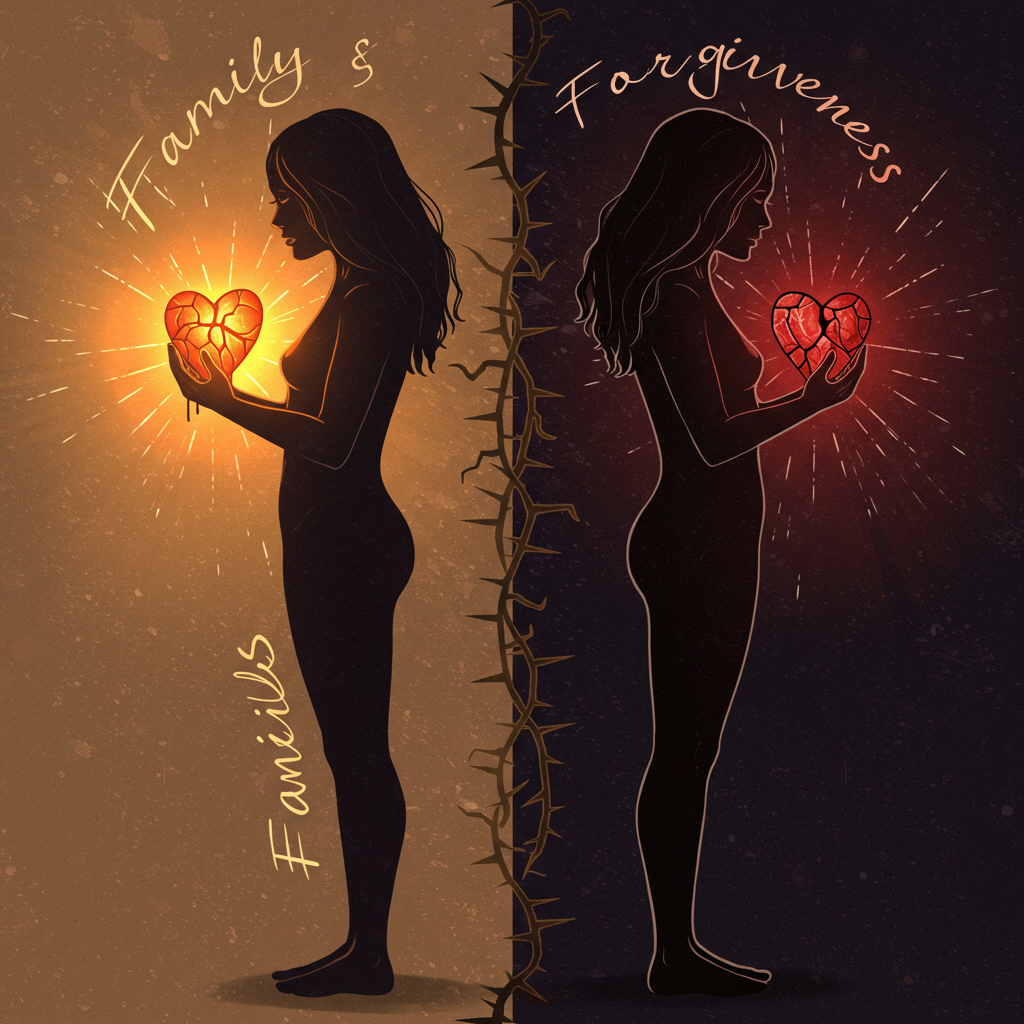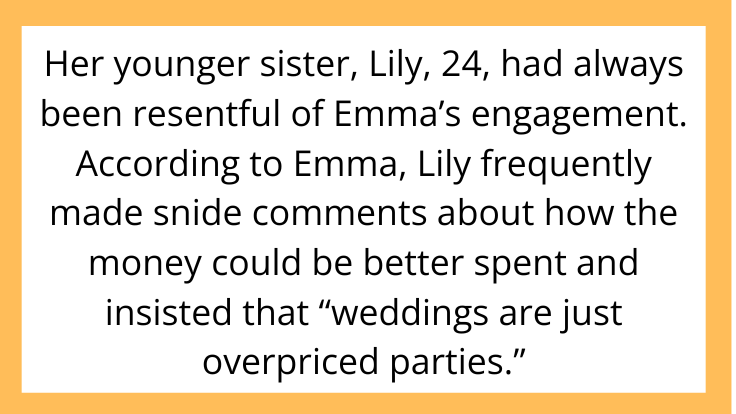AITAH for Cutting Off My Sister After She Ruined My Wedding Dress?
When it comes to family, forgiveness is often expected—even when the hurt runs deep. But what happens when a loved one crosses a line you can’t ignore? Today’s AITAH scenario dives into a heated conflict between two sisters, a destroyed wedding gown, and a decision that shattered their bond.
Let’s unpack this complicated situation.
The Backstory: A Dream Dress Turned Disaster

A 27-year-old woman—let’s call her Emma—shared her story on r/AITAH, seeking perspective on whether she overreacted. Emma had been engaged for two years and spent months saving up for her dream wedding dress. It was an intricate custom design, costing over $4,000—a once-in-a-lifetime splurge she was incredibly proud of.
Her younger sister, Lily, 24, had always been resentful of Emma’s engagement. According to Emma, Lily frequently made snide comments about how the money could be better spent and insisted that “weddings are just overpriced parties.”
Everything came to a head one week before Emma’s wedding when Lily asked to “see the dress up close.” Emma reluctantly agreed, thinking it might be a chance to bond. She stepped away to take a phone call—and returned to find Lily standing over the gown with scissors in hand.
In seconds, the delicate lace bodice and flowing train were shredded beyond repair.
The Fallout: A Sisterly Relationship in Ruins

Emma was hysterical. She screamed, demanded Lily leave, and immediately called her parents. Lily’s explanation? She said she “couldn’t watch Emma waste so much money on something so stupid” and claimed she was “doing her a favor.”
Emma’s parents begged her to forgive Lily, arguing that she was “just stressed” and didn’t mean it. But Emma refused to have her sister at the wedding and blocked her on every platform. She also demanded Lily repay the cost of the dress—a demand Lily called “extortion.”
Now, months later, Emma’s family continues to pressure her to “let it go and move on,” but she remains firm in her decision to cut Lily off completely.
Unsure whether she was being too harsh, Emma turned to Reddit: Am I the villain for ending my relationship with my sister over this?
The Arguments: Who’s Really in the Wrong?

The Case for Emma: Protecting Her Boundaries
Many commenters quickly rallied behind Emma. From their perspective, Lily’s behavior wasn’t a simple lapse in judgment—it was malicious sabotage.
Here’s why:
-
The destruction was deliberate.
-
Lily showed no remorse.
-
Emma’s trust was completely betrayed.
One commenter put it bluntly: “She destroyed something precious out of spite. You have every right to protect yourself.”
Setting boundaries—even with family—is sometimes the only way to move forward. Allowing Lily back into her life without accountability could signal that Emma’s feelings don’t matter.
The Case for Lily: A Cry for Help?
While most readers sided with Emma, a few tried to see Lily’s side. Some speculated she was overwhelmed by jealousy or possibly struggling with her mental health.
They argued that while her actions were unacceptable, total estrangement was extreme—especially if there’s a chance for reconciliation.
However, even the more sympathetic voices agreed that Lily needed to take responsibility for what she’d done before any healing could happen.
Cultural Expectations: The Myth of Unconditional Forgiveness

This story struck a nerve because it challenges a cultural belief that family deserves infinite chances. Many people are taught from childhood to “forgive no matter what,” but real-life boundaries often look different.
Forgiveness doesn’t mean pretending nothing happened. It doesn’t mean allowing destructive people back into your life. Sometimes, love from a distance—or no contact at all—is the healthiest choice.
What Happens Next?

For Emma:
-
Maintain her boundaries until (or unless) Lily shows genuine remorse.
-
Consider therapy to process the grief of losing both her sister and her dream wedding moment.
-
Remember that self-respect isn’t cruelty.
For Lily:
-
Take full responsibility and make amends—including paying for the dress.
-
Reflect on why she felt entitled to sabotage her sister’s happiness.
-
Seek professional help if jealousy or resentment are chronic issues.
The Bigger Question: When Does Enough Become Enough?

Everyone has their own threshold for forgiveness. For some, a heartfelt apology might be enough. For others, certain actions are so harmful that reconciliation feels impossible.
Emma’s story is a powerful reminder: no one is obligated to maintain a relationship that causes them pain, even if that person shares their DNA.



